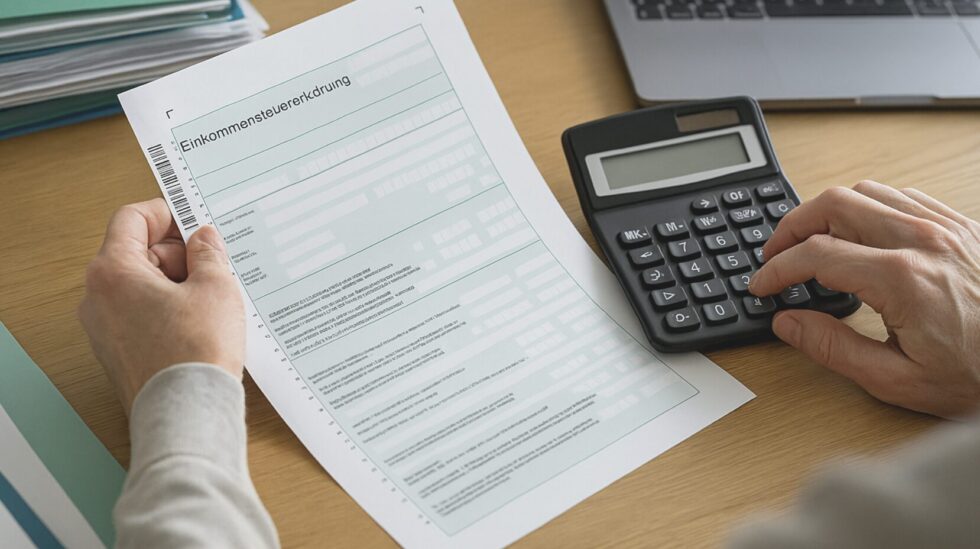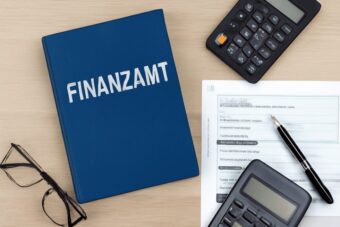Automated tax returns for employees? DSTG calls for a radical overhaul

Berlin, July 14, 2025 – Shortly before the deadline for submitting tax returns for the 2024 fiscal year, the German Tax Union (Deutsche Steuer-Gewerkschaft, DSTG) has called for a sweeping reform: the complete abolition of mandatory tax returns for employees and the introduction of an automated system in which the tax office pre-fills the return, and the taxpayer merely reviews and confirms it. This was reported by G.Business, citing DSTG Chairman Florian Köbler’s statements to the Funke Media Group as well as a Deutschlandfunk broadcast aired on July 14, 2025.
Less bureaucracy, more efficiency
DSTG Chairman Florian Köbler has demanded a significantly simplified tax system, with fewer forms, fewer documentation requirements, and a stronger focus on digitalization. The current process of itemized deductions and paperwork is, in his view, overly burdensome. Instead, he calls for flat-rate allowances to be used wherever appropriate and feasible. According to Köbler, such measures would save millions of people time, money, and stress.
“We demand that tax law be simplified – fewer forms, fewer documents, more digital solutions. Flat-rate deductions instead of itemized accounting wherever possible,” Köbler told the Funke Media Group.
Technically feasible: Austria as a model
According to the DSTG, a fully automated model is not only realistic but already in use elsewhere. Austria has implemented a system where employees receive pre-filled tax forms based on data from payroll, social security, and digital receipts. The taxpayer only needs to verify the information and submit it electronically.
“We are specifically calling for the abolition of tax returns for employees. Instead, the tax return should be created automatically and only needs to be reviewed and, if necessary, supplemented by the taxpayer,” Köbler said.
Removing tax obligations for pensioners
The DSTG also proposes that retirees be exempted entirely from the obligation to file tax returns. Instead, taxation should be handled via an automatic withholding mechanism by the pension fund, similar to models already in place in Scandinavian countries. According to Köbler, this would greatly relieve older citizens who often find the tax process complicated and inaccessible.
Government coalition already planning simplifications
The current coalition agreement between CDU, CSU, and SPD already includes reform plans in this direction:
- Simplification through typification and standardized deductions,
- Exemption of retirees from tax return obligations wherever possible,
- Gradual mandatory digital filing of tax returns for simple cases.
The DSTG is now urging the government to take the next logical step and implement a fully automated system for employees as well.
Future outlook: centralized digital tax portal and AI
In the long term, the union advocates for the development of a centralized digital service platform for the tax administration. This would include:
- A personal user dashboard for all tax-related matters,
- Integration of artificial intelligence for intelligent assistance, rule-based compliance, and bundling of support and benefit programs.
Such a system would increase transparency, reduce errors, and improve efficiency both for taxpayers and the authorities.
Deadlines for 2024 at a glance
| Category | Filing Deadline |
|---|---|
| Without professional assistance | July 31, 2025 |
| With a tax advisor or association | April 30, 2026 |
About the DSTG
The German Tax Union (DSTG) represents approximately 100,000 employees in tax administration and is one of the most influential public-sector unions. It has long advocated for modernization, digitization, and more citizen-friendly procedures in tax policy.
Stay connected for news that works — timely, factual, and free from opinion. Learn more about this topic and related developments here: Cybersecurity in Online Casinos: How to Protect Your Data and Money

